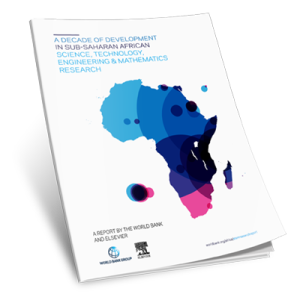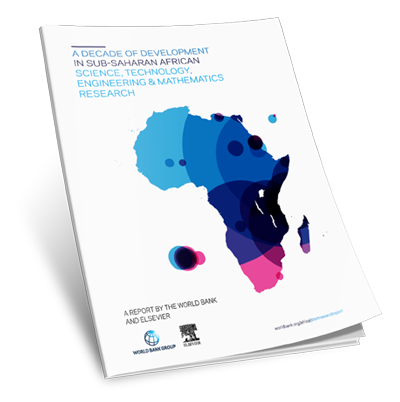 Research in the science, technology, engineering and mathematics, or STEM, fields in Sub-Saharan Africa has declined in the last 10 years in quantity and citation impact – but there has been steady progress in other sciences, especially health – according to a new World Bank report.
Research in the science, technology, engineering and mathematics, or STEM, fields in Sub-Saharan Africa has declined in the last 10 years in quantity and citation impact – but there has been steady progress in other sciences, especially health – according to a new World Bank report.
The continent’s research output has grown, its STEM research – excluding South Africa – has been declining at the rate of 0.2% annually since 2002. “Sub-Saharan Africa’s output growth has overwhelmingly been driven by advances in health sciences research (approximately 4% annual growth), which now accounts for 45% of all Sub-Saharan Africa research,” says the World Bank. While Sub-Saharan Africa’s research output has doubled in the last 10 years and currently has a 1.4% share of global research, citations of the region’s peer-reviewed STEM-related articles comprised a very small share of global citations.
Drawing on information outside the study, the World Bank suggests the large STEM gap could be linked to the low quality of basic education in science and maths, and higher education systems that are skewed towards disciplines other than STEM.
According to the African Union’s committee on education, science and technology, enrolment in higher education in Sub-Saharan Africa still stands at 7% of the age cohort, which is way too low compared with other world regions.

